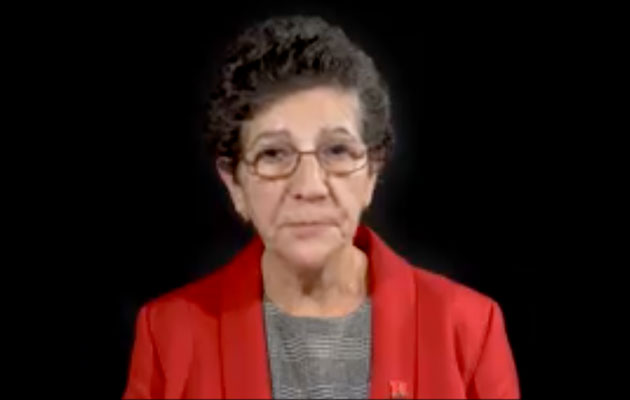No One is Immune: Miss USA 2019 Death Shows Suicide is Possible for Anyone, says Rutgers–Camden Student Wellness Center Director
Maria Serra explains signs of distress and what to do if you notice these signs
 With the shocking news that Cheslie Kryst — Miss USA 2019, an attorney and “Extra” host — died by suicide, difficult questions arise: Were there any warning signs? What, if anything, did others do to try to stop it? How could someone seemingly so successful do this?
With the shocking news that Cheslie Kryst — Miss USA 2019, an attorney and “Extra” host — died by suicide, difficult questions arise: Were there any warning signs? What, if anything, did others do to try to stop it? How could someone seemingly so successful do this?

Maria Serra, director of the Student Wellness Center
Maria Serra, director of the Student Wellness Center at Rutgers University–Camden, explains that Kryst’s death demonstrates that no one is immune to suicide. Suicidal thoughts and actions, she explains, are brought on by hopelessness, helplessness and often feeling worthless. Even celebrities who appear to be fine are often dealing with immense pressure to keep up their appearance, to maintain a public image that was created and built over time.
“These individuals have often worked very hard to get to where they are, but bring with them their past history: any traumas, pre-existing vulnerabilities, histories of depression and losses, etc.,” says Serra. “They often feel a great deal of pressure to not let others down, and to maintain the ‘image’ which makes it harder for them to address underlying mental health issues. It also leaves them feeling very much alone.”
To help anyone avoid such pitfalls, says Serra, friends and family should be on the lookout for these well-documented signs of distress:
- Significant changes in eating, sleeping, self-care or socializing habits
- Signs of prolonged sadness/depression
- Intense feelings of distress, guilt or shame
- Changes in sleep patterns
- Personality changes
- Feeling alone, hopeless, useless or a burden to others
- Extreme mood swings or irritability
- Using drugs or alcohol, especially changes in typical patterns of use
- Getting in fights or suddenly not getting along with others
- Increase in reckless, impulsive, out-of-control behaviors
- Detaching from others
- A preoccupation with death and dying, or glorifying death or someone who died by suicide
- Saying goodbye in subtle ways
- Social media posts or concerning hashtags (#givingup, #whatsthepoint)
- Friends or roommates reporting concerns
Just as importantly, says the director of the Student Wellness Center, if you notice any of these signs, take it seriously. Identify support networks such as NJ HOPELINE (1-855-654-6735), National Suicide Prevention Hotline (1-800-273-8255) and Crisis Text Line (741741), and start a conversation. “Ask how they are doing in general and express concern; use open-ended questions and avoid sounding judgmental,” she says. “Validate their emotions, such as emphasizing that it is okay to struggle but it is also possible to feel better.”
Moreover, says Serra, keep the channels of communication open. Bring up the issue again if necessary, and seek help both for the individual struggling and for yourself.
“Trust yourself; you know your child, friend or partner the best,” says Serra. “If you feel there is an immediate danger, seek help immediately by calling 911 or going to your nearest emergency room.”
Serra adds that one of her concerns with Kryst’s death is the public nature of her suicide and a potential increase in the numbers of suicides that could result. “In these cases, you often see a spike in suicides,” she says, nothing that, after Robin Williams’s death, suicide rates increased by about 10%.
Rutgers–Camden Chancellor Antonio D. Tillis reminds students that Serra and the Student Wellness Center team are available to provide services in a welcoming atmosphere that is respectful of the dignity of all students. Anyone who has a question or concern is encouraged to visit or contact the center at 856-225-6005.


